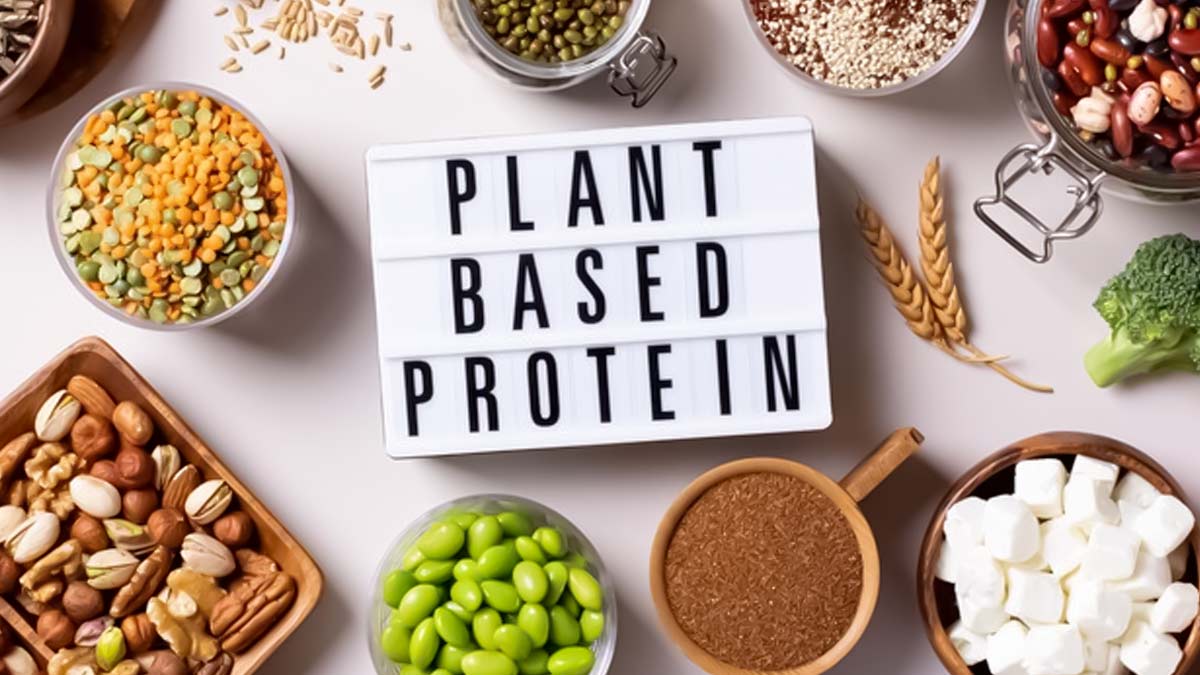Power Up Your Plant-Based Plate: A Guide to Protein Sources for Vegans
Protein is a crucial nutrient that plays a key role in building and repairing tissues, supporting immune function, and serving as a building block for hormones and enzymes. For vegans, who abstain from animal products, finding adequate and varied sources of protein can be particularly important.
Gone are the days when vegan diets were synonymous with protein deficiency. With a little planning and knowledge, vegans can easily thrive on a delicious and protein-rich diet. This article dives deep into the world of plant-based protein, exploring various sources, their benefits, and tips for incorporating them into your meals.
Debunking the Protein Myth
Protein is a crucial building block for our bodies, essential for muscle repair, cell growth, and enzyme function. While traditionally associated with animal products, a diverse plant-based diet can provide all the protein you need.
The key lies in consuming a variety of protein sources throughout the day. Unlike animal protein, which often comes in complete packages with all essential amino acids, plant-based protein sources tend to be lower in certain amino acids. However, by combining different plant proteins, your body can readily synthesize all the essential amino acids it needs.
A Plant-Powered Protein Pantry
Here’s a breakdown of some of the most potent plant-based protein sources to stock your pantry with:
- Legumes: These champions of the plant-based world are nutritional powerhouses. Lentils, beans (black, kidney, pinto, chickpeas), and peas are all excellent protein sources, along with being packed with fiber, iron, and folate. Enjoy them in soups, stews, dips, salads, or simply roasted with spices for a satisfying snack.
- Soybeans: A versatile and complete protein source, soybeans offer a variety of options. Tofu, a blank canvas for culinary creativity, can be marinated, baked, scrambled, or crumbled. Tempeh, with its nutty flavor and firmer texture, is perfect for stir-fries and grilling. Edamame, the immature soybean pod, is a delicious way to add protein to snacks or salads. Soy milk, a dairy-free alternative, also boasts a good amount of protein.
- Seitan: Made from gluten, seitan has a chewy texture similar to meat, making it a popular choice for vegan meat alternatives. It’s perfect for stir-fries, fajitas, or even vegan “pulled pork” sandwiches.
- Grains: While not the protein powerhouses as other options, whole grains like quinoa, oats, and brown rice contribute a good amount of protein, especially when combined with other sources. Plus, they add fiber, complex carbohydrates, and essential vitamins and minerals to your diet.
- Nuts and Seeds: These tiny nutritional powerhouses are protein and healthy fat bombs. Almonds, cashews, walnuts, peanuts, pumpkin seeds, chia seeds, and flaxseeds are all excellent choices. Enjoy them by the handful, sprinkle them on salads, yogurt alternatives, or even blend them into nut butter for a protein-rich spread.
- Nutritional Yeast: This deactivated yeast flakes, with a cheesy flavor, are a vegan’s secret weapon. It adds a delightful savory touch to dishes while boosting protein and B vitamins. Sprinkle it on popcorn, pasta, roasted vegetables, or even add a spoonful to sauces for a nutritional kick.
Beyond the Basics:
For those seeking additional protein options, consider these emerging plant-based powerhouses:
- Mycoprotein: Derived from fungi, mycoprotein is a complete protein source gaining popularity due to its meaty texture and high protein content.
- Sprouted grains and legumes: Sprouting grains and legumes enhances their protein content and makes them easier to digest.
- Plant-based meat alternatives: Many commercially available meat alternatives made from pea protein, soy, or other plant-based ingredients offer a convenient and protein-rich option.
Building a Protein-Packed Vegan Plate: Tips and Tricks
Here are some tips to help you incorporate a variety of protein sources into your vegan meals:
- Plan your meals: Think about protein inclusion throughout the day. Start your morning with a protein-rich smoothie made with plant-based milk, protein powder, and fruits or vegetables. Include lentils or beans in your lunch salad or soup. Enjoy a tofu scramble or tempeh stir-fry for dinner.
- Combine protein sources: Don’t be afraid to mix and match different plant-based proteins throughout the day to ensure you’re getting all the essential amino acids.
- Snack smart: Choose protein-rich snacks like nuts, seeds, edamame, or veggie burgers to keep you satiated between meals.
- Don’t forget the greens: While not protein powerhouses, leafy green vegetables like spinach and kale contribute small amounts of protein and are essential for a well-rounded diet.
- Protein Powders: Consider adding a vegan protein powder to your smoothies or yogurt alternatives for an extra protein boost, especially if you’re struggling to meet your daily protein needs. Choose a powder made from pea protein, brown
Adopting a vegan diet doesn’t mean compromising on protein intake. The diverse sources available can help maintain a balanced diet rich in essential nutrients. These vegan proteins are not only beneficial for health but also contribute to a more sustainable planet by reducing dependency on animal agriculture. By incorporating a variety of these protein sources, vegans can enjoy delicious, nutritious, and environmentally friendly meals.














Post Comment